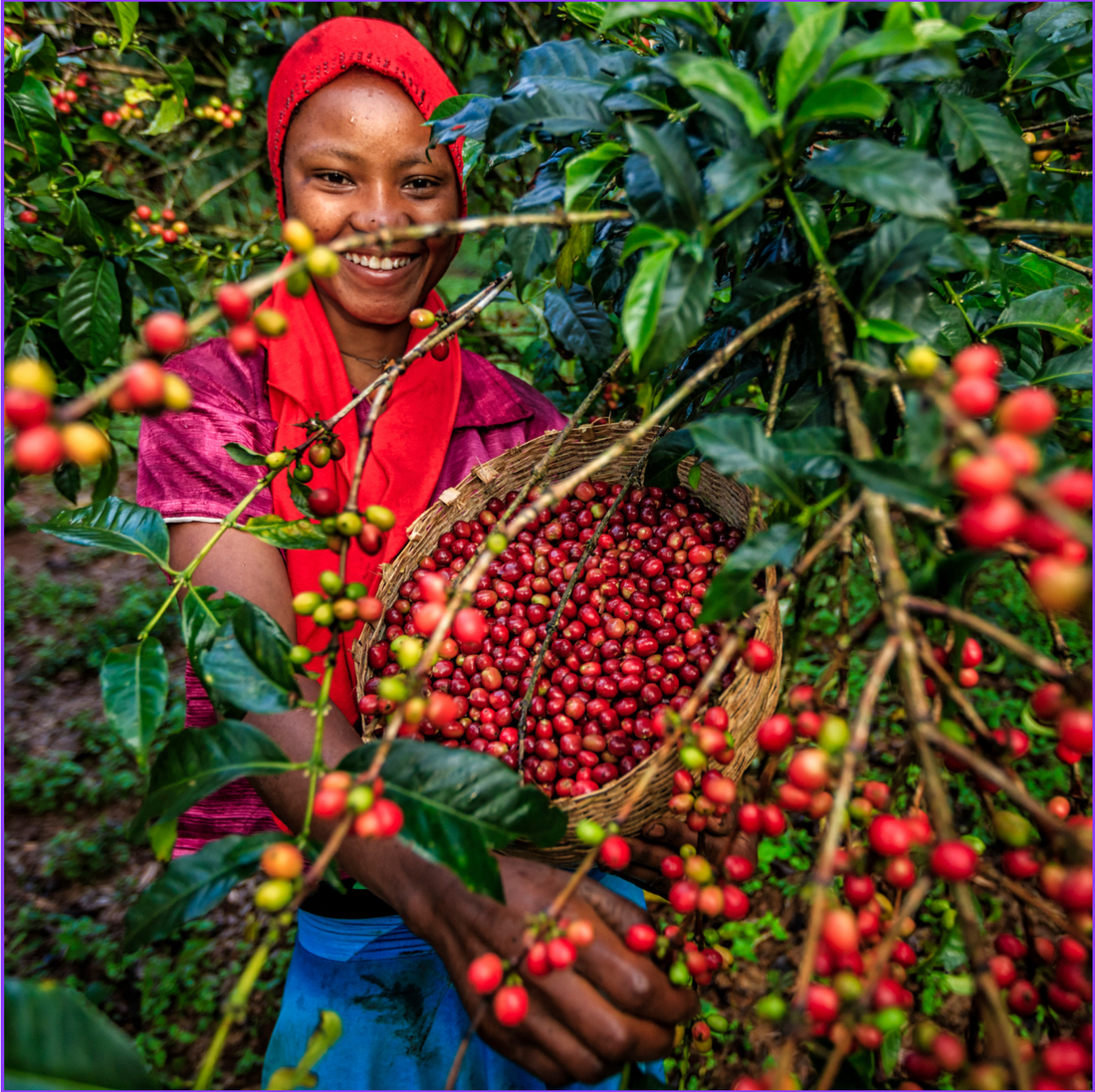
Discovering the Coffee Treasures of South and East Africa
Share
Discovering the Coffee Treasures of South and East Africa
When you think of coffee, your mind might wander to the rolling hills of Colombia or the bustling coffee shops of Italy. But did you know that some of the world’s most unique and flavorful coffees originate from the lush highlands of South and East Africa? These regions are not just historical birthplaces of coffee but are also trendsetters in today’s specialty coffee market.
Let’s explore the coffee cultures, traditions, and flavors that make South and East Africa a must-know for coffee enthusiasts.
The Cradle of Coffee: Ethiopia
Ethiopia is widely recognized as the birthplace of coffee. According to legend, a goat herder named Kaldi discovered the energizing effects of coffee beans when his goats became unusually lively after eating them. Today, Ethiopia is one of the largest coffee producers in the world, boasting an array of coffee varieties that reflect its diverse landscapes and rich traditions.
Unique Flavor Profiles
Ethiopian coffees are known for their vibrant and complex flavors. Beans from regions like Yirgacheffe and Sidama offer floral and citrus notes, while Harrar coffees bring bold, fruity, and wine-like characteristics. These distinct profiles are due to Ethiopia’s unique heirloom varieties and traditional processing methods.
Sustainability Spotlight
Ethiopia’s coffee farms are predominantly smallholder operations, with farmers using organic and sustainable practices passed down through generations. Supporting Ethiopian coffee means supporting a sustainable coffee future.
Rwanda: The Land of a Thousand Hills
Rwanda’s coffee journey is one of resilience and transformation. After the tragic events of the 1994 genocide, the country turned to coffee as a means of economic recovery and growth. Today, Rwandan coffee is celebrated for its quality and unique taste.
Flavor Notes
Rwandan coffee is often described as bright and sweet, with notes of red fruit, honey, and citrus. The high altitudes and volcanic soils of the country’s “thousand hills” create the perfect conditions for growing Arabica coffee.
Empowering Communities
Coffee cooperatives in Rwanda empower local farmers, many of whom are women, providing them with fair trade opportunities and a sustainable livelihood.
Kenya: A Symphony of Acidity and Complexity
Kenyan coffee stands out for its intense, wine-like acidity and bold flavors. The country’s coffee auctions are renowned for setting global quality benchmarks, attracting buyers from all over the world.
Signature Tasting Experience
Kenyan coffees are famous for their blackcurrant, tomato, and citrus notes. The combination of volcanic soils, high altitudes, and careful wet-processing techniques ensures a bright and memorable cup.
Innovation and Excellence
Kenya is constantly innovating in coffee production, using advanced techniques to improve quality and yield. This focus on excellence keeps Kenyan coffee trending in the specialty market.
South Africa: Coffee Culture with a Twist
While South Africa is not a major coffee producer, it plays a significant role in the coffee industry with its vibrant coffee culture. Cities like Cape Town and Johannesburg are home to some of the continent’s most innovative coffee shops.
Unique Trends
-
Rooibos Coffee: South Africa’s native rooibos tea is often blended with coffee for a caffeine-free alternative that offers a rich, earthy flavor.
-
Specialty Cafés: South Africa’s specialty coffee scene rivals those of global coffee capitals, focusing on traceability and ethically sourced beans.
Why South and East African Coffee Matters
Coffee from South and East Africa is more than just a beverage; it’s a story of resilience, culture, and sustainability. These regions are not only preserving ancient coffee traditions but are also shaping the future of the coffee industry.
What You Can Do
-
Try African Coffee: Seek out single-origin coffees from Ethiopia, Rwanda, or Kenya to experience their unique flavors.
-
Support Ethical Sourcing: Look for brands that prioritize fair trade and sustainability in their sourcing practices.
-
Explore Coffee Tourism: Plan a trip to explore coffee farms and cafes in these regions for an immersive experience.
At Black•ology Coffee Company, we celebrate the heritage and diversity of coffee. As we continue to source and share coffee stories, we invite you to explore the treasures of South and East Africa with us. Whether you’re savoring a cup of Ethiopian Yirgacheffe or experiencing the boldness of Kenyan AA, remember that every sip is a journey.
Ready to start your adventure? Explore our collection of African coffees and discover the rich tapestry of flavors they have to offer.
